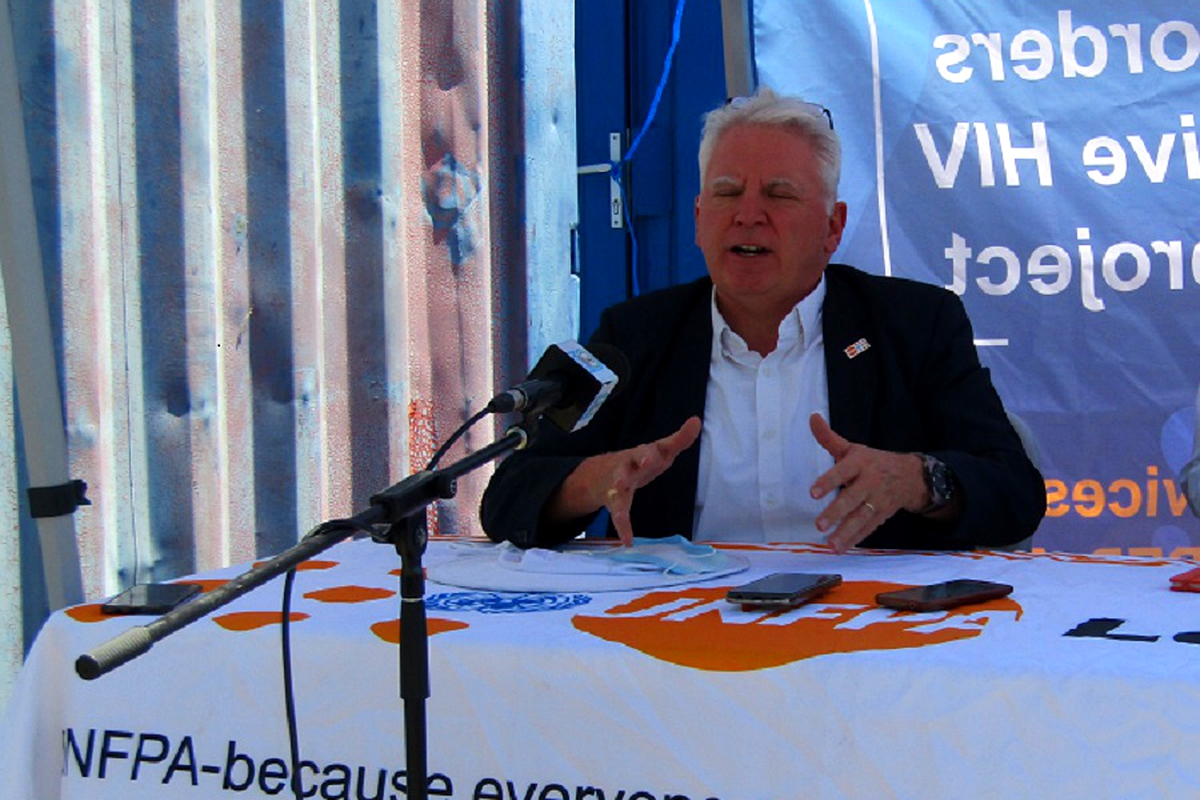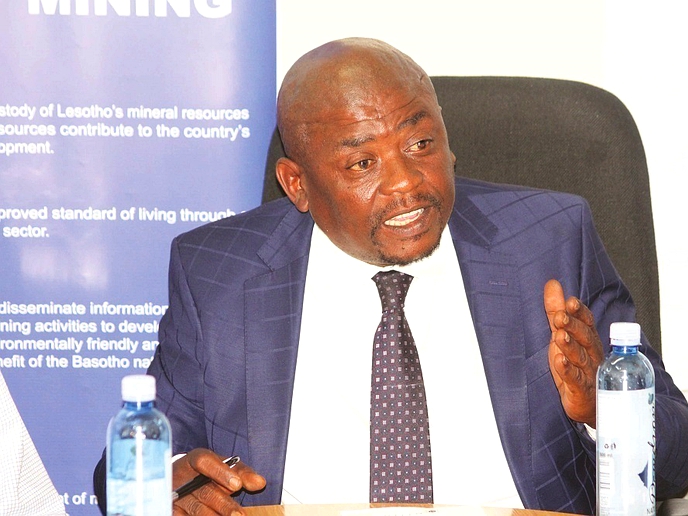LEBEOANA Kholokholo, the Project Youth Officer at the Lesotho Planned Parenthood Association (LPPA) says owing to a high HIV prevalence among female sex workers along Lesotho borders, they are encouraging an amplified use of condoms and behavioural change in a bid to lower the HIV transmission rate.
health
Oct. 20, 2021
LINEO MABEKEBEKE
4 min read
LPPA promotes intensified condom use

UNFPA Representative to Lesotho, Dr Marc Derveeuw
Story highlights
The LPPA, a local body that offers family planning and management of sexually transmitted infections services is through the support of the United Nations Population Fund (UNFPA), a UN agency aimed at improving reproduction and maternal health worldwide, running a comprehensive HIV prevention programme called Along the borders.
The programme, according to Mr Kholokholo focuses on preventing HIV transmission and improved access to Sexual and Reproductive Health and Rights (SRHR) information and services along Lesotho’s three porous borders of Maseru, Maputsoe and Mafeteng.
“Through the UNFPA support, we are able to play a pivotal role in trying to contain the prevalence of HIV/AIDS,” he said.
He showed that there is high HIV prevalence among women, especially sex workers, adding that LPPA mainly serves three groups of people along the borders, including long distance drivers, sex workers and the Lesbian, Gay, Bisexual, Trans, Intersex and Queer (LGBTIQ+) community.
“In order to lower HIV statistics, we are currently running three programmes along the three borders, which are Condom Programming, which ensures that our clients make use of condoms, next is behavioural change, in which we engage the clients to see a change in behaviour that would lead to lowering HIV and then there is the referrals on the integrated services, in which our peer educators refer the clients to the LPPA clinic,” he also said.
He was quick to note that since the advent of the COVID-19 pandemic, they have not been able to reach the targeted number of clients, especially the long distance drivers due to the restricted movement across the borders with the neighbouring South Africa.
“However, this year there has been a significant change, in terms of the target reached, we are able to distribute condoms and pamphlets giving out information to the drivers,” he said.
“This project initiated by the UNFPA in collaboration with LPPA along Lesotho’s three borders of Maputsoe, Maseru and Mafeteng is proving to be quite productive now,” Mr Kholokholo added.
These are the busiest borders which are deemed highly porous and catalytic to transmission of new HIV infections, hence the project is targeting migrants, long distance truck drivers, youth and key populations along those borders.
This is done in a bid to intensify efforts towards preventing HIV and Sexually Transmitted Infections (STIs) amongst risk populations such as key populations, migrants and youth.
Thapelo Maja, a peer educator working on the project, said through the condom programming initiative, they managed to organise condom campaigns, making people aware of the correct consistent use of condoms.
What they usually encourage to the key populations which include long distance truck drivers, sex workers and LGBTIQ+, she said is to give them an opportunity to have integrated services from LPPA.
Enjoy our daily newsletter from today
Access exclusive newsletters, along with previews of new media releases.
“I guess they prefer LPPA because of the services they get there. Nobody gets judged at our clinics and the clients get all the services under one roof because ours is a one-stop shop,” Ms Maja also said.
The Lesotho Population-based HIV Impact Assessment (LePHIA 2020) report shows that Lesotho is doing well on the overall programming, and that the HIV programme reaches HIV infected people quite successfully.
For his part, the UNFPA Country Representative, Dr Marc Derveew said he is quite worried about what is going to happen to young people in future.
He said a lot of young people get infected with HIV, which is also a major concern to LPPA.
“There are still many new infections, youth escaping Pre-exposure Prophylaxis(PrEP), not knowing or being aware of how to protect themselves and not having access to condoms,” Dr Derveew said, adding that there are many girls out there who do not know their HIV statuses.
He further expressed his disquiet at the high cost of Anti-retrovirals, adding that the prevention agenda has been reduced to PrEP and male circumcision, with extremely little attention given to behaviour change.
“The reason we want to partner with LPPA is because we want to increase the attention going to the prevention methods by reaching the risk groups,” he said.
Personnel from LPPA and UNFPA on Saturday toured the Maseru border post to find out the challenges the peer educators working there meet in their line of duty.






